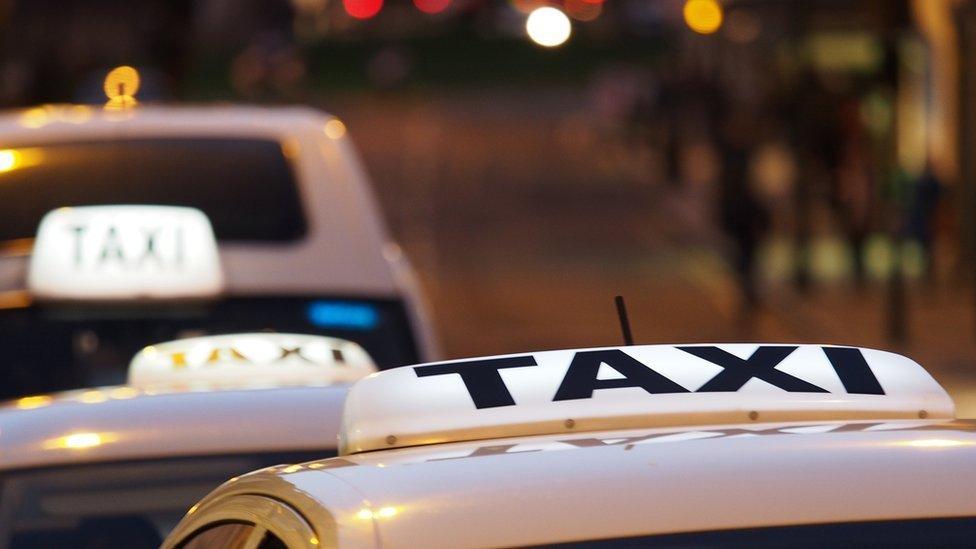Taxi fares in Northern Ireland could rise in bid to ease driver shortage
- Published

Maximum fares for taxi journeys in Northern Ireland could soon increase by 7.6% as part of a Stormont plan to get more drivers into the industry.
Infrastructure Minister Nichola Mallon wants the legislation for the rise to be in place by the end of this month.
Taxis firms have complained about a shortage of drivers, with many having left the industry for other jobs during the coronavirus pandemic.
The minister said she would review taxi fares again next spring.
Other measures announced to help boost the number of drivers include providing money to cover the cost of licencing fees.
That could save each new driver Ā£372, said Ms Mallon.
"Intervention is needed now to address the shortage of drivers, especially as we enter one of the busiest periods of the year for the industry," she said.
'Serious shortage of drivers'
But William McCausland, managing director of Fonacab, said the fare increase is not enough.
Mr McCausland said the maximum tariff needs to go up "significantly" in order to entice more drivers to work unsociable hours, particularly over the weekend.
"The fares need to change when there is a serious shortage of drivers," he told the “óĻó“«Ć½'s Evening Extra programme.
"A driver at the moment working on a Tuesday is earning almost as much as they do on a Saturday night. When would you choose to work?
"Whenever you can't get a cab, it needs to be rewarding for the driver to work."
“óĻó“«Ć½ News NI has been told that some taxi drivers have found employment with delivery companies, supermarkets and within the construction industry.
Figures from the Department for Infrastructure show that the number of registered taxi drivers has fallen from 9,590 in 2019-20 to 8,781 for the year 2020-21.
It is understood the number of working drivers could be lower than the number reflected in the latest figures.
In December last year it emerged that almost half of Northern Ireland's taxi drivers failed to apply for an emergency support grant set up by Stormont.
The Department for Infrastructure opened a second Covid-19 support fund in February for those who were ineligible in the first round.
Related topics
- Published9 June 2021
- Published9 December 2020